DEWIS Symposium 12 February 2016
Look back symposium: ‘Gender, Power & Politics’ on 12 February 2016
“We need people to start accepting that they are biased.” Paul Walton, Professor of Chemistry at the University of York, has already given this talk more than a 100 times and is invited weekly to speak on gender equality in science. Gender influences the chances for success. Gender matters, but is there a problem? And if so, is it not just a women's problem? These issues were addressed at the symposium Gender, Power & Politics on 12 February 2016. The report, pictures, video and powerpoints are available now! Read all about this symposium and genderequality in science.
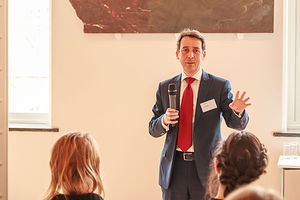
Professor Paul Walton
“Diversity brings more innovation and creativity to the university and a range of teams get more funding,” says Naomi Ellemers, Distinguished Professor at Utrecht University. ( Also read Strength in Diversity in Nature Magazine) Ellemers examines the belief systems we hold and presents scientific and personal evidence that things are happening that we wouldn’t expect. These beliefs are not so very different from 40 or 50 years ago. Prof. Ellemers focuses on how diversity within organisations relates to career development, commitment to work and innovation within task groups. She has received numerous prizes for her work, including the renowned NWO Spinoza Prize.
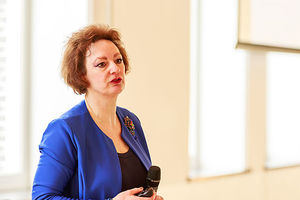
Professor Naomi Ellemers
Two main beliefs we hold are:
- I don’t believe in the glass ceiling. We only consider an employee’s quality and women are just not interested’.
- ‘I don’t believe we have anything against women. Our director is a woman, so it is possible!’ or ‘We just appointed another woman’.
Scientific research shows that stereotyping and implicit biases underlie all these assertions. And the problem is not easily solved. For instance, simply including more women on selection committees will not solve it because women also have implicit biases.
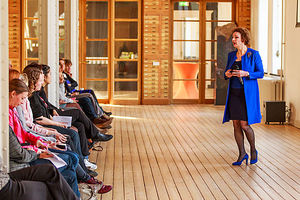
The following studies provide more evidence of the hidden biases that play a role.
- Science faculty’s subtle gender biases favor male students
- Elite male faculty in the life sciences employ fewer women
- Women and academic medicine: a review of the evidence on female representation
- Leaks in the pipeline: separating demographic inertia from ongoing gender differences in academia.
Ellemers is one of the Athena’s Angels: four female professors who have joined together to promote the interests of women in science. Their mission is to ensure truly equal opportunities for men and women in science: http://www.athenasangels.nl/ Athena’s Alert publishes personal stories of discrimination experienced by female scientists.
“Discrimination has different faces,” says Ellemers. People can discriminate in a direct, blatant way, telling women they are less able and excluding their ideas in meetings. But they can also discriminate indirectly, in more subtle ways. We measure people’s quality differently. We say that women make a personal choice not to pursue an academic career. Denying discrimination is also discrimination. We do this when we refuse to acknowledge the forces around us.
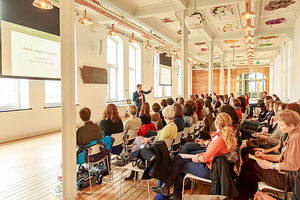
The facts are that women get less ERC grants and NWO grants and that there is a gender pay-gap.
- ‘Striking’ inequalities in higher education fuel gender pay gap
- Gender gap is wide in research funds, study shows
- Gender contributes to personal research funding success in The Netherlands
- Gender Differences in Recognition for Group Work
Why does this happen? “We have implicit expectations and associations,” says Ellemers. When we think of professional careers, we think of men. And when we think of family, we think of women. When we think of hard sciences, we think of men. But when we think of humanities or social sciences, we think of women. “We need to ask ourselves: Am I biased? First, we need to be aware of our biases and then we need to consciously correct ourselves and others,” says Walton.
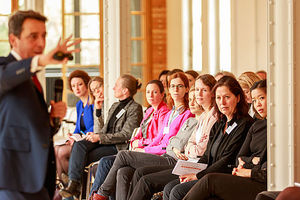
On the following website, you can take the ‘Implicit Harvard Test’: https://implicit.harvard.edu/implict.
So what can we do?
Here are some actions that the University of York has taken:
- more balanced membership on key committees
- open management
- ‘inclusiveness’ committee
- resource allocation during leave
- culture change
“It takes a long time for things to change. But things did change for us,” says Walton.
Download Prof. Walton’s presentation: Gender equality in Science.
Download Prof. Ellemers’ presentation: Only quality counts.